Sarah Christmyer's Blog, page 2
March 7, 2025
THE DEVIL MADE ME DO IT: Reflecting on the sin of Pride
I’m reflecting on the seven deadly sins this year, focusing on one each week as part of my Lenten examination of conscience. Will you join me? The internet is full of questions to use if you need help, just type in “examination of conscience, seven deadly sins” and find a set you like. Or you can do as I do: spend time reading what the Bible has to say about these sins, choose a few verses to meditate on and ask the Lord to examine my heart and bring things to mind. Then on Fridays, I add what I’ve discovered in myself as intentions when I pray with the Penitential Psalms. [It’s less complicated than it sounds – you can download instructions here: Praying-the-Penitential-Psalms-download.pdf]

Fittingly, the first and possibly most deadly of those sins is pride. Pride with a capital “P;” the “mother of all sins,” it has been called. To St. Gregory the Great, it’s even more than that. It is the “queen of sins,” which once it conquers and possesses a heart, surrenders it to other sins to do their destructive work.
Lucifer, because of pride, thought he could rise to heaven and reign as God—and fell to hell as a result (see Isaiah 14:12-14).

Gustav Dore’ (1886), The spiritual descent of Lucifer into Satan. Illustration for John Milton’s “Paradise Lost.” Public Domain.
Adam and Eve, tempted by that fallen angel to be like God, but without God, fell by pride as well. “In that sin man preferred himself to God and by that very act scorned him. He chose himself over and against God, against the requirements of his creaturely status and therefore against his own good” (CCC, 398).
And here we are, you and me, as a result: inclined to that same grave and deadly sin.
Pride is thinking too much of yourself. It’s the excessive love of your own excellence. It can begin simply enough. All it requires is a turning away from God, a withdrawing of our heart from him (see Sirach 10:12).
Pride is deadly because it leads to hatred of God.
We’ve all heard that “pride goes before a fall” (Proverbs 16:18), and not just for Lucifer, Adam, and Eve. But why? What does pride look like? Consider some of the following in prayer, noting what you learn. In what ways are you guilty of pride? Bring anything you find to God for healing as you pray with Psalm 6, using this antiphon: “From the sin of pride, O Lord, deliver me…”
Psalm 10:4Isaiah 3:16Luke 18:9-14Acts 12:21-23
Download instructions here: Praying-the-Penitential-Psalms-download.pdf
Coming nextWeek 2, Psalm 32 — “From the sin of greed, O Lord, deliver me…”
© 2025 Sarah Christmyer. Adapted from a series on the 7 Deadly Sins that appeared on this website during Lent 2014.
The post THE DEVIL MADE ME DO IT: Reflecting on the sin of Pride appeared first on Come Into The Word with Sarah Christmyer | Bible Study | Lectio Divina | Journals | Retreat.
December 23, 2024
GOD IS WITH YOU (Even if you can’t tell)
Every Christmas for nearly 30 years, my husband’s mother sent us a new ornament. There are creamy white Belleek castles and shamrocks and angels; engraved brass Christmas trees and stars; large globes covered with family artwork – enough to start the kids off on their own trees when it’s time.

Then one year, Mom couldn’t send us ornaments even though she’d picked them out. Suzanne Christmyer passed away soon after Thanksgiving, having lived a long full life and loved by her children and grandchildren. She was nearly 90.
If you’ve lost a family member, you know what it’s like going into the holidays. They leave a life-sized hole that sometimes seems as solid as they once were. I never thought much about those ornaments or what they’d mean, but last week as I took them out, unwrapped them one by one and hung them on the tree, they brought a rush of memories. I felt her presence, heard her laugh, remembered how much she loved us all. In that room by the tree, it’s as if she’s with us still.
But God IS with us still“With us” is the gift God gave us that first Christmas. His presence in something far more real than an ornament: his Son born as a human child who grew to be a man. He lived with us and died for love of us. And even now, he is with us in the Eucharist … in his Holy Spirit … in our hearts.

Sometimes, though, we need reminders of his love. Sometimes he seems far away or even gone – as though he died forever, or like his resurrection didn’t matter. If that’s true for you right now, here are some promises from his Word to hang onto. I encourage you to write them on your hearts by memorizing those that have special meaning to you. Or maybe write them down and hang them, like spiritual “ornaments,” somewhere that you can see them:
He’s with you even when:You’re afraid — “Be strong and of good courage; be not frightened, neither be dismayed; for the Lord your God is with you wherever you go.” – Joshua 1:9
You’re in trouble — “Be strong and of good courage, do not fear or be in dread of them: for it is the Lord your God who goes with you; he will not fail you or forsake you.” – Deuteronomy 31:6
You feel alone or abandoned or weak — “I have chosen you and not cast you off; fear not, for I am with you, be not dismayed, for I am your God; I will strengthen you, I will help you, I will uphold you with my victorious right hand.” – Isaiah 41:9b-10
You’re persecuted — “The Lord has taken away the judgments against you, he has cast out your enemies. The King of Israel, the Lord, is in your midst; you shall fear evil no more.” – Zephaniah 3:15
You’re sad or facing death — “Even though I walk through the valley of the shadow of death, I fear no evil; for thou art with me; thy rod and thy staff, they comfort me.” – Psalm 23:4
It feels like God is far away — “I am sure that neither death, nor life, nor angels, nor principalities, nor things present, nor things to come, nor powers, nor height, nor depth, nor anything else in all creation, will be able to separate us from the love of God in Christ Jesus our Lord.” – Romans 8:38-39
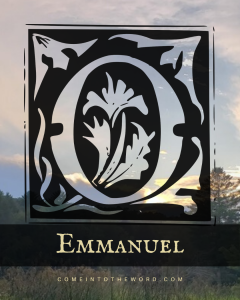
Emmanuel. “God with us”!
Hang onto these promises, too!If you’re feeling far from God this week in spite of Christmas, curl up by the tree with your Bible and read some of these other ways God is with you and the things He will do for you:
John 14:16-17Zephaniah 3:17Isaiah 57:15Exodus 33:13-14“I’m with you always, to the close of the age” Jesus told his disciples in Matthew 28:20. And he has said, “I will never leave you nor forsake you”!
As you celebrate the coming of Emmanuel (which means, “God with us”), may you experience God’s presence in a very special way.

Make a spiritual pilgrimage through the Old Testament in the new year. In Becoming Women of the Word, you will walk alongside women of the Old Testament who pave the way for Mary, mother of our Lord. Learn how Eve picks up again after the Fall … how Sarah trusts in the impossible … how rival sisters Leah and Rachel cope with unmet longing. Find a soul sister in Miriam or Rahab, Deborah or Ruth. Learn to pray with Hannah; from Esther learn to act boldly when you’re afraid. And from Judith – well, you’ll need to read to find out. Available from Ave Maria Press or wherever books are sold.
© 2014, 2024 Sarah Christmyer.
The post GOD IS WITH YOU (Even if you can’t tell) appeared first on Come Into The Word with Sarah Christmyer | Bible Study | Lectio Divina | Journals | Retreat.
December 17, 2024
UNTO YOU A CHILD IS BORN! – Welcoming Jesus with the O Antiphons

Source: https://bestchristmaspageantever.movi...
“HEY! Unto YOU a child is born!”
Tough and scrappy little Gladys Herdman, one of “the worst children in the history of the world,” may not have been the most likely choice to play the angel in the Christmas play — but she knew how to deliver her line!
I watched “The Best Christmas Pageant Ever” last weekend and was delighted by this new rendition of an old favorite. The unloved, rag-tag, unchurched Herdman kids bully their way into prime roles in the annual Christmas pageant. Everything goes hilariously wrong, of course. But by the end, the fictional town of Emmanuel gets a fresh look at the child who is “God with us” — and at who he came to save.
The O Antiphons help us prayIt’s a good kick-off to the last stretch of Advent, when the liturgy launches us into a seven-day plea for Jesus to come to us. “O come, O come, Emmanuel!” we sing. The song is based on the O Antiphons, which frame Mary’s Magnificat canticle at vespers from December 17 – 23. Each antiphon is a plea for Jesus to come, each calling him by a different name: Wisdom, or Lord and Ruler, or Root of Jesse, for example.
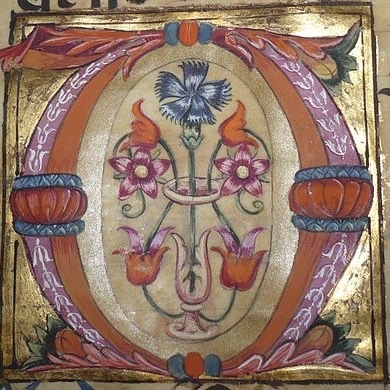
In the movie, Imogene Herdman “would have called the baby Bill instead of Jesus,” saying “he’d never get out of the first grade if had to write” all the titles people gave him! But each name gives us a new way of looking at our Savior. And each antiphon prompts us to pray in a particular, personal way based on what the Lord (under that title) brings to us.
How to pray them at homeIt’s worth taking time to savor these antiphons each day, even if you don’t pray vespers. You might say them with the Magnificat before you go to sleep. Or sing O Come, O Come Emmanuel with your family at dinner. Or take a few minutes in the morning to read the antiphon and meditate on a passage of Scripture that reflects its meaning (I’ve suggested some below).
Don’t miss the hidden messageFinally, for those of you who like acrostics: if you take the first letter of each Latin title and work backwards from December 23, they spell Ero cras (Emmanuel, Rex, Oriens, Clavis, Radix, Adonai, Sapientia). In Latin, that means “Tomorrow I shall be (with you).”
“HEY! Unto YOU a child is born!”
+ + + + + + +
The O Antiphons begin today. Here they are*, together with related verses (or you can download a printable pdf here that gives each antiphon with related verses from Scripture and the hymn):
December 17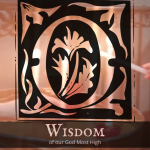 O WISDOM OF OUR GOD MOST HIGH,
O WISDOM OF OUR GOD MOST HIGH,GUIDING CREATION WITH POWER AND LOVE:
COME TO TEACH US THE PATH OF KNOWLEDGE!
If any of you lacks wisdom, let him ask God, who gives to all men generously and without reproaching, and it will be given him. (James 1:5)
The law of the LORD is perfect,
reviving the soul;
the testimony of the LORD is sure,
making wise the simple;
the precepts of the LORD are right,
rejoicing the heart;
the commandment of the LORD is pure,
enlightening the eyes;
the fear of the LORD is clean,
enduring for ever;
the ordinances of the LORD are true,
and righteous altogether.
More to be desired are they than gold,
even much fine gold;
sweeter also than honey
and drippings of the honeycomb.
(Psalm 19:7-10)
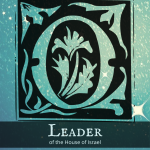 O LEADER OF THE HOUSE OF ISRAEL,
O LEADER OF THE HOUSE OF ISRAEL,GIVER OF THE LAW TO MOSES ON SINAI:
COME TO RESCUE US WITH YOUR MIGHTY POWER!
No temptation has overtaken you that is not common to man. God is faithful, and he will not let you be tempted beyond your strength, but with the temptation will also provide the way of escape, that you may be able to endure it. (1 Cor 10:13)
Fear not, for I am with you, be not dismayed, for I am your God; I will strengthen you, I will help you, I will uphold you with my victorious right hand. (Isaiah 41:10)
December 19 O ROOT OF JESSE’S STEM,
O ROOT OF JESSE’S STEM,SIGN OF GOD’S LOVE FOR ALL HIS PEOPLE:
COME TO SAVE US WITHOUT DELAY!
There shall come forth a shoot from the stump of Jesse,
and a branch shall grow out of his roots.
And the Spirit of the LORD shall rest upon him,
the spirit of wisdom and understanding,
the spirit of counsel and might,
the spirit of knowledge and the fear of the LORD.[b]
And his delight shall be in the fear of the LORD.
He shall not judge by what his eyes see,
or decide by what his ears hear;
but with righteousness he shall judge the poor,
and decide with equity for the meek of the earth. (Isaiah 11:1-4)
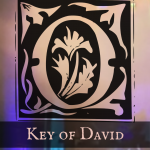 O KEY OF DAVID,
O KEY OF DAVID,OPENING THE GATES OF GOD’S ETERNAL KINGDOM:
COME AND FREE THE PRISONERS OF DARKNESS!
For to us a child is born,
to us a son is given;
and the government will be upon his shoulder,
and his name will be called
“Wonderful Counselor, Mighty God,
Everlasting Father, Prince of Peace.”[c]
Of the increase of his government and of peace
there will be no end,
upon the throne of David, and over his kingdom,
to establish it, and to uphold it
with justice and with righteousness
from this time forth and for evermore.
The zeal of the LORD of hosts will do this. (Isaiah 9:6-7)
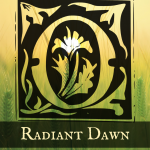 O RADIANT DAWN,
O RADIANT DAWN,SPLENDOR OF ETERNAL LIGHT, SUN OF JUSTICE:
COME AND SHINE ON THOSE WHO DWELL IN DARKNESS AND IN THE SHADOW OF DEATH.
The people who sat in darkness have seen a great light, and for those who sat in the region and shadow of death light has dawned. (Matthew 4:16)
Again Jesus spoke to them, saying, “I am the light of the world; he who follows me will not walk in darkness, but will have the light of life.” (John 8:12)
December 22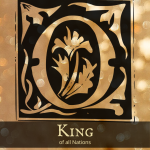 O KING OF ALL NATIONS AND KEYSTONE OF THE CHURCH:
O KING OF ALL NATIONS AND KEYSTONE OF THE CHURCH:COME AND SAVE MAN, WHOM YOU FORMED FROM THE DUST!
And he came and preached peace to you who were far off and peace to those who were near; for through him we both have access in one Spirit to the Father. So then you are no longer strangers and sojourners, but you are fellow citizens with the saints and members of the household of God, built upon the foundation of the apostles and prophets, Christ Jesus himself being the cornerstone, in whom the whole structure is joined together and grows into a holy temple in the Lord; in whom you also are built into it for a dwelling place of God in the Spirit. (Ephesians 2:17-22)
December 23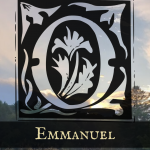 O EMMANUEL, OUR KING AND GIVER OF LAW:
O EMMANUEL, OUR KING AND GIVER OF LAW:COME TO SAVE US, LORD OUR GOD!
Then I saw a new heaven and a new earth; for the first heaven and the first earth had passed away, and the sea was no more.[a] 2 And I saw the holy city, new Jerusalem, coming down out of heaven from God, prepared as a bride adorned for her husband; 3 and I heard a great voice from the throne saying, “Behold, the dwelling of God is with men. He will dwell with them, and they shall be his people,[b] and God himself will be with them;[c] 4 he will wipe away every tear from their eyes, and death shall be no more, neither shall there be mourning nor crying nor pain any more, for the former things have passed away.”
And he who sat upon the throne said, “Behold, I make all things new.” (Revelation 21:3-5)
Come, Lord Jesus!
* Traditional O Antiphons cited here are from Catholic Blessings and Prayers as quoted on usccb.org.)
+ + + + + + +
Parts of this post explaining the O Antiphons have appeared previously on this site.
© 2024 Sarah Christmyer
The post UNTO YOU A CHILD IS BORN! – Welcoming Jesus with the O Antiphons appeared first on Come Into The Word with Sarah Christmyer | Bible Study | Lectio Divina | Journals | Retreat.
November 27, 2024
JOURNEY TO CHRISTMAS WITH ONE OF THESE FREE READING PLANS
Wake up!
It’s time to make our way toward Bethlehem.
Imagine what that was like for the magi, leaving on their long journey, following a star that promised a king. They hoped in that promise and acted in faith: not knowing where they would end up or how far they had to go.

The Magi Journeying, by James Tissot. Brooklyn Museum, public domain.
In that sense, their journey echoes the journey of Abraham and Sarah two thousand years earlier. Leave everything and go to the land that I will show you, God said. At the end was untold blessing, including the king those wise men would search to find.
Christmas wraps up all the hopes and expectations of salvation history, not just from the time of Abraham but from the time of creation — and presents them to us in a mother and child in the little town of Bethlehem.
We’re on a similar journey today: knowing that Jesus has been born, but awaiting his coming again as King. One way to enter into the spirit of expectation and recall the real meaning of Christmas is to travel through Scripture following the “Jesse Tree” — named for Isaiah’s prophecy that the Messiah would come like “shoot from the stump of Jesse,” father of King David (Isa 11:1). This Advent tradition offers daily readings that depict the ancestors of Jesus or stories that show how all the Old Testament points to Christ.

Here are two such reading plans to choose from.
The first is a traditional “Jesse Tree.” Starting with Creation, it traces not only the lineage of Jesus from Jesse, but also the history of salvation as it points to his coming.Download the “Jesse Tree” Advent Reading Plan
The second is one I created to trace the fulfillment of God’s curse on the devil and promise to Eve after the Fall, that the woman and her “seed” will bruise the head of the serpent (see Gen 3:14-15). Subsequent generations of mothers and sons in salvation history give hints of the one who is to come, born of a woman, to defeat the devil … until the prophecy is fulfilled in Mary and Jesus.Download “The Woman and her Seed” Advent Reading Plan
Or reflect on the Mass readingsOf course, you can also follow the Sunday Mass readings, which have been carefully chosen to help prepare our hearts for Christ’s coming. Here are two ways you can do that:
Sign up for the online Pray More Advent Retreat and watch my weekly video reflections on the Sunday readings. Each talk comes with a transcript and a free downloadable lectio divina guide.OR: Click on the graphic below to download a printable checklist to guide your reading.Blessings on you as you welcome the Word this Advent!
© 2019, 2024 Sarah Christmyer

Make a spiritual pilgrimage through the Old Testament during Advent or in the new year. In Becoming Women of the Word, you will walk alongside women of the Old Testament who pave the way for Mary, mother of our Lord. Learn how Eve picks up again after the Fall … how Sarah trusts in the impossible … how rival sisters Leah and Rachel cope with unmet longing. Find a soul sister in Miriam or Rahab, Deborah or Ruth. Learn to pray with Hannah; from Esther learn to act boldly when you’re afraid. And from Judith – well, you’ll need to read to find out. Available from Ave Maria Press or wherever books are sold.
The post JOURNEY TO CHRISTMAS WITH ONE OF THESE FREE READING PLANS appeared first on Come Into The Word with Sarah Christmyer | Bible Study | Lectio Divina | Journals | Retreat.
June 30, 2024
COME INTO THE WORD: A Healing Encounter With Jesus (Mark 5:22-43)
The mural fills an entire wall of the Encounter Chapel, which is built on the first-century stone floor of the marketplace at Magdala by the Sea of Galilee. In it, sandals crowd the floor and linen robes brush against the legs and ankles of the men who throng around Jesus. He is a man on a mission, on his way to heal a dying girl.
Through the legs and robes stretches a hand. It is a woman’s hand, worn by age and care. And where it touches the fringe of the Lord’s garment, at the very center of the painting, a pulse of light unites them.

Mural in the Encounter Chapel of the Duc in Altum Spiritual Center, Magdala
All three synoptic gospels tell the story of this woman, whose faith saves her from a bleeding condition that has plagued her for a dozen years. Mark tells us she “had suffered much under many physicians, and had spent all that she had, and was no better but rather grew worse” (5:26). The nature of her illness makes her ceremonially unclean. She can’t enter the women’s court of the Temple or appear in public without letting people know she’s unclean – so imagine her lonely despair!
But then she heard about Jesus.
Getting to him through a crowd would not be easy. Luke draws attention to her fear: she came up behind Jesus (8:44); she tried to escape notice (8:47). I picture her cloaked and veiled, pushing through the crowd, hoping no one recognizes her. She should not be there! But she makes a final thrust forward, reaching for the hem of his garment because it is the safest place to touch without contaminating him.
The result is electric. “Immediately” she feels herself healed. “Immediately” Jesus feels the release of healing power. “Who touched me?” he asks, and the incredulous disciples laugh. Everyone is touching everyone; there’s no way not to in the crush of this crowd. But Jesus seeks the woman out. He draws her from the shadows, has her reveal her secret. The shame of it! That everyone should know she might have touched them. But instead of condemnation, freedom. “Daughter,” he calls her. It is the love of the Father, revealed through the Son. “Your faith has made you well; go in peace, and be healed of your disease” (Mark 5:34).
We don’t hear about this woman again, but her faith reaches out immediately to touch and strengthen someone else who needs it: Jairus, whose daughter dies while Jesus lingers. There are so many parallels and contrasts between the two stories, we’re compelled to read them together:
Two “daughters,” one ill 12 years and the other alive 12 years.One reaches out to touch Jesus; the other needs the hand of Jesus to be healed.Both times, someone whose body would defile others does not defile Jesus, but his life floods into them.“Do not fear, only believe,” Jesus tells Jairus (Mark 5:36) — who has just witnessed her fear transformed to joy.
Back in the Encounter Chapel, I kneel where Jesus may have walked. In my mind I see the crowd disperse, following the Lord to Jairus’ house. The woman stays behind, alone again but this time, because she chooses it. She hugs her shawl around her shoulders, trying to take in the miracle. Her face fills with joy and slowly she starts to dance.
“LISTEN TO HIM”
Spend some time meditating on this story in Mark 5:22-43:
READ Mark’s account of the woman healed and the girl restored to life several times. Pray before you read, and ask the Holy Spirit to open your heart to hear the Lord speak to you through his word. What stands out to you? Say it out loud, or write it down.
REFLECT: Now read the passage again. What else do you notice? Meditate on whatever draws your attention. Ask the Lord to speak into your life. What do you hear?
RESPOND: Allow your meditation to turn to prayer: respond to God.
REST in the awareness of God’s love for you.
+ + + + + + +
Learn more about the Encounter Chapel and the recent excavations at Magdala at www.Magdala.org. Copies of the mural pictured above are available from their shop.
© 2016, 2024 Sarah Christmyer
 The Living the Word Catholic Women’s Bible includes almost 400 pages of special features created for women by women. Sarah Christmyer served as General Editor for the bible and also wrote a number of articles for it—including one that highlights the faith of the woman we read about in Mark 5, featured in this blog post.
The Living the Word Catholic Women’s Bible includes almost 400 pages of special features created for women by women. Sarah Christmyer served as General Editor for the bible and also wrote a number of articles for it—including one that highlights the faith of the woman we read about in Mark 5, featured in this blog post.
Learn more about this unique and beautiful bible here.
The post COME INTO THE WORD: A Healing Encounter With Jesus (Mark 5:22-43) appeared first on Come Into The Word with Sarah Christmyer | Bible Study | Lectio Divina | Journals | Retreat.
June 19, 2024
MAKE THE MOST OF THE R.E.S.T. OF THE SUMMER
How can it be summer already?! And how did I get this far without resting?
 Summer used to be one lazy day running into the next: swimming and picnics and hand-cranked ice-cream, nights full of stars and fireflies. Above all, there was time to rest. Time to watch the clouds or fish and paint and time to dream. Where did that all go?
Summer used to be one lazy day running into the next: swimming and picnics and hand-cranked ice-cream, nights full of stars and fireflies. Above all, there was time to rest. Time to watch the clouds or fish and paint and time to dream. Where did that all go?
“Martha, Martha, you are anxious and worried about many things.”
Our Lord’s words arise, unbidden, from the back of my mind. Only, what I hear is “Sarah, Sarah, you are anxious and worried….” For the fact is, the peace I’m looking for isn’t found beside a lake or “down the Shore,” as we say where I live. It helps, of course, to get away; but true rest begins on the inside.
“Come to me, you who labor and are heavy laden,” Jesus said, “and you will find rest for your soul” (Matthew 11:28-30)
For your soul. Yes, our bodies need rest. But no amount of sleep or leisure has power to calm a soul. For that, we need the Lord.
“Okay…,” says that a small voice in my head, “Sounds good – but how do I get it?” A few thoughts come to mind, that I share in hopes they will help you, too:
R-E-S-T: Remember, Encourage, Settle, TrustR = Remember GodGod loves you, [insert your name], with a deep and personal love. Remember who he is, who loves you!
He is the God who rested after creating and who made you in his image, to enter his rest (Gen 1–2).He is the God who thought rest so important, he made it a commandment (Exo 20:8–11).He is the God who said, in his Son, “Come to me…and I will give you rest” (Matt 11:28).God is all-powerful. He is perfectly able to give you the rest that he purposed and commands and promises (See Psa 4:8; 23:2–3; 127:1–2).To help you remember, try filling your mind with Scripture about God’s love and faithfulness—maybe one of the verses referenced in this article. If you commit Scripture to memory, the Holy Spirit can bring it to mind when you need it. This can be a powerful source of peace and strength.
E = Encourage each otherWe’re all in this together. When someone you know is overburdened or sinking in anxiety, encourage them to look up into the eyes of God. Encourage them to remember his love and faithful care. Find a friend who will do this for you as well.
S = Settle into God’s love“Be diligent to enter into that rest” (Hebrews 4:11). God doesn’t force his rest on us; we need to enter it. Practice casting your cares on God. See yourself climbing into his arms like a child nestles into the arms of her father. “Come to me,” he says (Matt 11:28; see too Jn 16:33).
T = TrustChances are, if your soul is not at rest, you are trusting in yourself instead of in God. Think of Peter, who rode the storm as long as he kept his eyes on Jesus. He was only engulfed by the waves when he looked at them instead (Matt 14:22-23. See too Phil 4:6–7).
Finding Summer R.E.S.T.God has strong arms to save us; he calms storms, he gives grace, he promises rest. When you think it all depends on you and you’re distracted by worry, remember the God who loves you!
As you head out to the beach or the lake or take a couple days to unplug, set aside some of that precious new free time for God. Reconnect to him in the silence, and truly REST.
© 2017, 2024 Sarah Christmyer
Related posts:
When You’re Anxious and Troubled: Where are Your Eyes?
Tribute to St. Martha, Friend and Servant of the Lord
Flourishing in Drought Part 4: Soaking in the Word

The post MAKE THE MOST OF THE R.E.S.T. OF THE SUMMER appeared first on Come Into The Word with Sarah Christmyer | Bible Study | Lectio Divina | Journals | Retreat.
May 17, 2024
THE POWER OF LOVE TO HEAL: John 21:15-19
Years ago, I betrayed the trust of another mom who thought I was watching her child. It was not intentional (I did not know she thought I had her child) so strictly speaking it was not a betrayal, but that is how she felt. Any relationship we might have had was broken. The balm of forgiveness and the help of the Holy Spirit were needed to heal.
The difference a word can makeI think of that as I read of Peter’s post-resurrection encounter with Jesus in John 21:15-19. If you remember, they last spoke when Jesus said (rightly) that Peter would deny him. Now Jesus flat-out asks him, “do you love me?” And Peter, knowing Jesus knows, is miserable. He can’t even bring himself to say the “L” word, love. At least not the word that Jesus uses.
Seven times the word “love” appears in English in this passage, but in the Greek there’s a difference. Jesus asks if Peter agapes him: does he have total, faithful, to-the-end love for the Lord? And all Peter can reply is “you know I phileo you.” He has brotherly love. I expect he wants to love Jesus more. But his past actions show he lacks agape, and he is painfully aware of it.

It’s hard to believe this is the same Peter we read about earlier in the gospels. Anguish has replaced bravado. How will Jesus reply?
Jesus meets Peter with mercyIt really is quite beautiful. After Peter twice meets Jesus’s agape with phileo, Jesus changes his question:
“Simon, son of John, do you phileo me?”
Jesus is meeting Peter where he is. You can’t quite get to agape? Let’s start with phileo. “Peter is grieved” at the change, and throws himself on the Lord’s mercy: “you know everything; you know that I phileo you.” And surprisingly, Jesus doesn’t seem to mind. He doesn’t demote him from “rock” and head of his church, he re-emphasizes his task. “Feed my sheep.” Do what I appointed you to do. Then he alludes to the death that Peter will die: he may have shrunk back in fear when crucifixion loomed, but Peter will die a martyr for Christ. If that isn’t agape love, I don’t know what is!
Greater love has no man than this, that a man lay down his life for his friends. (John 15:13)“Follow me,” Jesus adds. He doesn’t reject Peter for not being like him now, he calls him to follow. To become like him. Agape love, the kind demonstrated by Christ on the cross, is something that grows. Energized by Jesus’s forgiving love, witness to the resurrection, and filled with the Holy Spirit, Peter’s turning back will become a strong and steady charging forward. As he follows Jesus with the love that he has, that love will grow. Agape will come.
This same kind of forgiveness and power is available to us, both in our attempts to follow Jesus and in our attempts to love others. Let us offer the poor crumbs of phileo-love that we have and ask that in his hands, they be multiplied and turned into agape of God and neighbor.
You may also like:Love: Always There for the Giving
© 2018 Sarah Christmyer.
The post THE POWER OF LOVE TO HEAL: John 21:15-19 appeared first on Come Into The Word with Sarah Christmyer | Bible Study | Lectio Divina | Journals | Retreat.
April 7, 2024
DIVINE MERCY: WHAT’S IT TO YOU?
It is part of our human condition that grief and fear blind us to heavenly realities. On Easter Sunday, St. Paul challenged us with Colossians 3:1-4: “If then you were raised with Christ, seek what is above…. Think of what is above, not of what is on earth. For you have died, and your life is hidden with Christ in God.” To which I want to say, “Easier said than done!” I have no trouble rejoicing in Christ until I have trouble in my life, and then it’s too easy to fixate on that and forget him.
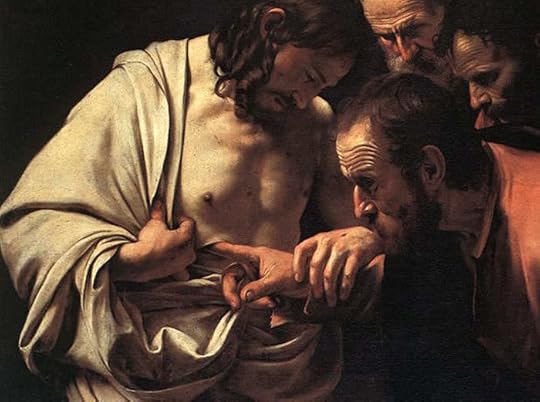
The Incredulity of St. Thomas, by Caravaggio (1601-1602). Wikimedia Commons.
I find it comforting to hear both last week and in today’s gospel, for Divine Mercy Sunday, that even those closest to Jesus had trouble seeing and believing the risen Christ. Mary Magdalene was grief-stricken, the apostles were afraid for their lives, and Thomas needed physical proof. I can relate to all of those things. But grief and fear and doubt didn’t mean the end of the story for the apostles, and it needn’t mean so for us, either. The Scriptures are careful to tell us how Jesus spoke tenderly to Mary Magdalene, spoke peace to the fearful apostles, and let Thomas feel his wounds. “Peace be with you,” he says. “Do not be unbelieving, but believe”!
Jesus Speaks Peace to His Disciples – and to UsListen and look, and Jesus will speak those things to you as well. Watch for the hidden ways Jesus appears to us: in the Eucharist (remember the disciples on the road to Emmaus, who only recognized Jesus in the breaking of the bread?); in his Word (think Mary Magdalene); in the forgiving words of the priest (think the disciples in the Upper Room); in the poor, in one another. Like the disciples, we must learn to see him. And when we do, our gut response is likely to be that of Thomas: “My Lord and my God!”
Gospel for Divine Mercy Sunday: John 20:19-31If you can, spend some time with today’s gospel (John 20:19-31). Don’t miss why it’s so fitting for Divine Mercy Sunday. Not only does Jesus show mercy to his unbelieving friends, in the process of bringing them peace he draws them into his own mission of forgiveness that enables others to feel his touch and know him: “As the Father has sent me, so I send you,” he charged the apostles.
Experiencing Mercy at MassWe, too, are to pass on what we have received. And every time we go to mass, we contemplate mercy and experience it from the Lord:
From the moment we enter the church:
We are welcomed by the arms of the Lord stretched out for us above the altar.We are forgiven our sins.We are fed by his body and blood.Our thirst is quenched by his Word.We are taught, encouraged, comforted, admonished, and guided by the Word and the homily.We are also sheltered by the Church, clothed by his grace.We are cleansed and set free by his mercy and forgiveness.

Those are all works of mercy (feeding the hungry, giving drink to the thirsty, clothing and sheltering and welcoming, teaching and admonishing and forgiving, and so on). We can’t give what we haven’t got. But from the Lord, we receive all that we need. And at the end of the mass, we hear Ite Missa est. “Go forth, the Mass is ended.” Sometimes the priest will say, “Go forth to love and serve the Lord.” In other words:
Open your eyes to Divine Mercy. Take what you have received, and pass it on!
+ + +
You may be interested in these related posts:
Be Not Afraid!God Calls Himself “Mercy”Forgiveness: What It Is and How to Do ItLive Mercy This Lent (series)Casting Out the Roots of Bitterness+ + +
© 2017 Sarah Christmyer
The post DIVINE MERCY: WHAT’S IT TO YOU? appeared first on Come Into The Word with Sarah Christmyer | Bible Study | Lectio Divina | Journals | Retreat.
March 30, 2024
ENTERING THE SILENCE OF HOLY SATURDAY
Scripture is nearly silent about Holy Saturday. It’s as if with the death of our Lord, everything stops. There is a flurry of preparation in the short time between his death and the start of the Sabbath: Joseph of Arimathea wraps the body of Jesus carefully and lays it in a new tomb not far from the cross. The women prepare aromatic oils and spices but there is no time to anoint the body, and they retire to their homes. Meanwhile, the chief priests and Pharisees get Pilate to seal the tomb and mount a Roman guard. A profound silence begins.
+ + +
I wrote this reflection for “Walk in Her Sandals: Entering Christ’s Passion through the Eyes of Women” (Ed, Kelly Wahlquist). This excerpt appears by permission of Ave Maria Press.
+ + +
It is a time of waiting and rest. How fitting that the Lord’s death would usher in the Sabbath! God rested after his creative work; now Jesus rests after his redemptive work. The Father rests, the Son rests, and the world rests … and waits … for the revelation of redemption.
Luke punctuates the time between burial and resurrection with a single line: “On the Sabbath they rested according to the commandment” (Lk 23:56). It is a pause pregnant with tension. “It is not finished” as far as anyone who lives is concerned.

We can imagine the Jewish leaders pacing in their robes, grimly glad to have seen the end of this rabble-rouser yet wondering if the disciples will make a move to steal the body. Will the guard hold? Will the man be made a martyr and ignite more discontent?
We can see the apostles cowering in a locked room. Their Lord was crucified. Will they be next? We can see the women hugging their shawls around themselves, absorbed in grief and painful questions even as they try to observe the Sabbath. We can imagine them checking the spices again and again, making sure there are enough. We can see them tossing in their beds, then waiting by the door ready to pick up those spices the moment the sky announces the end of the Sabbath. There will be no delay in caring for their beloved.
And Mary? Where is she? John tells us that from the hour of Jesus’s death, he “took her to his own home.” We can see John, the disciple Jesus loved, and Mary, who undoubtedly loved Jesus more than life itself — two who were joined as family by Jesus’s final act on the cross — observing that Sabbath together. I would like to have been the proverbial “fly on the wall” in John’s house that day. When people love and are loved like those two were, what do the hours after the loved one’s death look like?

Albrecht Altdorfer, Christ on the Cross between Mary and St. John
Surely they mourned. That day was horrific and they are human, after all. Yet Mary has been formed by decades of pondering. God promised to give her a son who would be called the Son of the Most High and who would reign forever. God filled her empty womb with blazing life. She was warned that a sword would pierce her soul (Lk 2:35). She has known her son is “about his father’s business.” Surely she heard Jesus predict his death and resurrection. Surely she heard the report from Martha, that Jesus raised Lazarus and said “I am the resurrection and the life.”
Perhaps Mary tells John the words of the angel: “Nothing is impossible with God.” Two thousand years earlier, an angel said those same words to Abraham and Sarah about another impossible child, who later had reason to ask “where is the lamb for the sacrifice?” Abraham offered his promised son, knowing that God could raise him to life if necessary (See Heb 11:19). Did John and Mary think of that, and ponder?
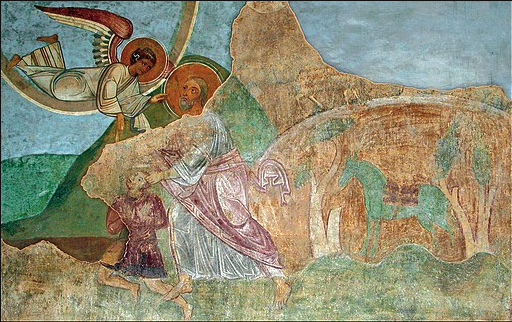
The Sacrifice of Abraham. Artist Unknown.
For his part, John is “the beloved disciple” who rested on Jesus’ breast at the Last Supper. He saw Jesus raise Jairus’s young daughter to life (Mk 5). He was an eyewitness of the transfiguration and heard God say from the cloud, “This is my beloved Son.” He was with Jesus in his agony in the garden and was the only apostle who stayed by him to the end.
John and Mary do not seem to have been present when Joseph buried Jesus, and Mary doesn’t seem to have taken part in preparing the spices. Perhaps they knew there was something deeper going on. They may have welcomed the Sabbath. It freed them from other obligations, allowed them to ponder together just what Jesus’s death might mean. It would be natural for them to repeat and discuss his final words:
“Today you will be with me in paradise” (Lk 23:42-43)He said that to a thief! Was he, then, in paradise? Does his kingship involve bringing people there?
“Father, into your hands I commend my spirit” (Lk 23:46)These words give no room for hatred or revenge against the authorities. Jesus offered his own life! Maybe John told Mary Jesus’s words at the Last Supper: “This is my body, broken for you […] This is my blood of the new covenant…” Maybe those cryptic words began to make sense. What they had witnessed was not an execution. It was a perfect sacrifice.
Maybe John shared with Mary other things Jesus said at the Last Supper, things he would later write in his gospel:
“Now I am going to him who sent me. . . .…You will weep and lament, but the world will rejoice; you will be sorrowful, but your sorrow will turn into joy. When a woman is in labor, she has pain, because her hour has come but when she is delivered of the child, she no longer remembers the anguish, for joy that a child is born into the world. So you have sorrow now, but I will see you again and your hearts will rejoice, and no one will take your joy from you. . . . I have said this to you, that in me you may have peace. In the world you have tribulation; but be of good cheer, I have overcome the world” (Jn 16:5, 20-23, 33).
Did these things infuse their mourning with hope?
“It is finished,” Jesus said before he died (Jn 19:30).What is finished? The work Jesus came to do. His “hour” – like the hour of the woman in labor – had come. Hidden away in the womb of the tomb, new life was about to burst forth.
[…] Every Holy Saturday, the Church waits as it were beside the tomb, meditating on Christ’s death while awaiting announcement of his resurrection. Like John, we can take Mary into our homes and ponder with her the last words of Christ. Like her, we can rest in a place between anguish and joy, waiting in quiet hope. … The King is not dead, he rests from his work. A new day will come. His Cross is not defeat, it is victory!
+ + + + + + +
Walk in Her Sandals brings together Scripture reflection, biblical historical fiction, insights into the God-given gifts of femininity, and the reflections of modern-day Catholic women to draw women deeper into an experience of Christ’s Passion, death, and Resurrection. It was written for WINE: Women in the New Evangelization by ten leading Catholic women authors and is published by Ave Maria Press.
You might also like:
© 2017 Sarah Christmyer
The post ENTERING THE SILENCE OF HOLY SATURDAY appeared first on Come Into The Word with Sarah Christmyer | Bible Study | Lectio Divina | Journals | Retreat.
January 6, 2024
LOOKING FOR JESUS? Lessons from the Magi
I can’t stop thinking about the Epiphany this week, as I — like the Magi — seek to find Jesus.
There are times I can’t find him. Or he’s there, and I can’t see him. I don’t recognize his presence in people around me, in situations that are hard. Shouldn’t it be easy, to find the Son of God?
Sometimes it’s tempting to listen to voices of doubt. God doesn’t exist, they say. Follow your own star; ignore the one in the heavens. I want eyes like the magi’s, who weren’t put off when the king they traveled so far to see, turned up in a cowshed. He must have been nothing like what they expected. And yet, they searched until they found him, and they worshiped. What was their secret?

The Magi Journeying, by James Tissot. Brooklyn Museum, public domain.
Here’s what I glean from the Magi (see Matthew 2:1–12):
1. Start with what you knowThe magi notice a star, use their art to determine it announces the birth of a foreign king, and travel to the most likely place to find him: the royal city. But earthly wisdom only takes them so far. Jerusalem is not the place.
2. Search the ScripturesJerusalem may not be the right place, but it was worth the journey. For there the magi hear the word of God: a prophecy that the child is to be born in Bethlehem.
3. Follow its lightIt’s not enough just to know God’s word. Follow it—do what it says—whether you understand it or not, and whatever others think. The priests in Jerusalem, for example, know the prophecy but do nothing. Others who hear are “troubled.” No one else bothers to make the trip. Still, the magi set out for Bethlehem.
4. Trust the Holy Spirit to guide youHaving stepped out in faith, the magi are rewarded by heavenly guidance: the star they saw in the East appears and guides them to the child, whom they worship and honor with gifts.
In this new year – may we not stop at following our own stars, but walk according to God’s word even when we don’t understand it; and may the “star” of his Spirit light our way to Christ as we take him the gifts of our lives.
© 2024 Sarah Christmyer (This article was adapted from one published on this blog January 6, 2016.)
You may also like this article, which has appeared on The Great Adventure Catholic Bible Study blog: Epiphany: Finding Christ After Christmas.
Read TS Eliot’s thought-provoking poem, Journey of the Magi (or hear him read it himself!). It’s a wonderful poem, worth reading multiple times.
The post LOOKING FOR JESUS? Lessons from the Magi appeared first on Come Into The Word with Sarah Christmyer | Bible Study | Lectio Divina | Journals | Retreat.





